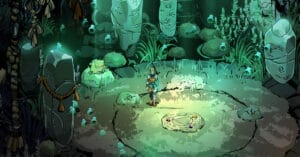It’s been far too long since Quantic Dream gave us a new game. Their last one, Detroit: Become Human, still ranks as one of my all-time favorites. I love games that let you put your own spin on the story, sometimes feeling almost like interactive films, where you decide the fate of the characters in your care.
If you’re also tired of waiting for the next Quantic Dream release, I’ve put together a list of alternatives. In the games below you’ll face important choices that left me staring at the screen for minutes, unsure of what to do. The focus here is also on relatively simple gameplay.
And where better to begin than with Quantic Dream’s earlier work?
Disclosure: Some links in this article are affiliate links. If you were planning on buying one of these games anyway, using those links may earn me a small commission at no extra cost to you and helps support Born for Media.
Heavy Rain
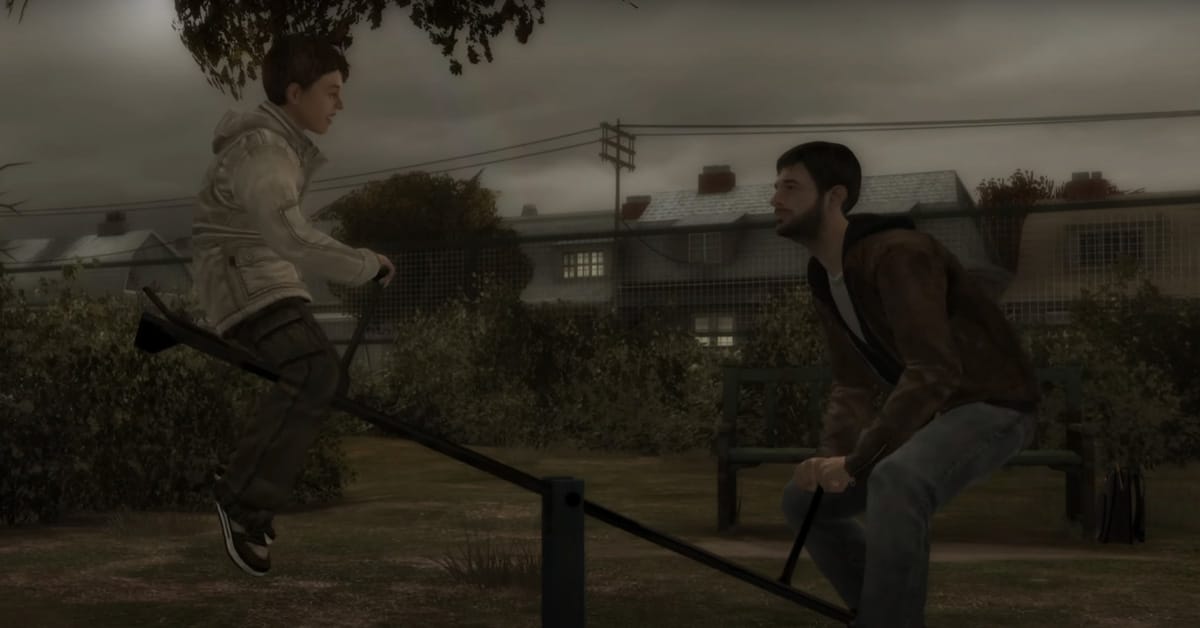
Heavy Rain is another masterpiece that lives and dies by your choices. Released in 2010, it was visually way ahead of its time. I remember thinking back then: “Graphics will never get better than this.”
As in Detroit: Become Human, you control multiple characters. As father Ethan Mars, you’re pushed to the limit in a desperate attempt to rescue your kidnapped son from the notorious Origami Killer. You also step into the shoes of FBI profiler Norman Jayden, private detective Scott Shelby, and journalist Madison Paige.
The gameplay is very similar to Detroit: you explore environments, inspect details, make dialogue choices, and take decisions that can drastically alter the fate of all four protagonists. What sacrifices would you make to save your child? It’s one of those questions that, even fifteen years later, still lingers in my mind.
Where to buy:
Available as part of the Quantic Dream Collection on Amazon, which includes both Heavy Rain and Beyond: Two Souls.
Beyond: Two Souls

Three years later, Quantic Dream treated us to another cinematic, interactive experience in the same vein (this three-year gap suited me much better, by the way). At its core, both in style and gameplay, it feels very similar to Detroit and Heavy Rain, but of course with an entirely new story.
This time you control just one character… or well, actually two. The game follows the life of Jodie Holmes across different stages of her life, from early childhood to young adulthood. And Jodie goes through a lot. She shares a paranormal bond with a mysterious entity known as Aiden.
With Jodie, you move through different eras and chapters of her life, while as Aiden you can interact with the world in unique ways. Your choices shape Jodie’s relationships with those around her. Do you turn Aiden into a ruthless accomplice, or try to keep the entity under control — as much as that’s even possible?
Also included in the Quantic Dream Collection linked above.
Fahrenheit / Indigo Prophecy

The final Quantic Dream title on this list is also the very first that made me fall in love with the studio. Admittedly, choices aren’t as decisive here as in their later games, but you can clearly see the foundations of what would come after.
The story opens with one of the protagonists, Lucas Kane, becoming possessed and committing a brutal murder in a diner bathroom. The rest of the game is about staying one step ahead of the police while also uncovering what really happened.
You don’t just play the suspect, though. You also take control of the detectives chasing him. As Carla Valenti and Tyler Miles, you try to piece the case together. In fact, that very first scene sets the tone: as Lucas you might leave behind certain clues, only to discover them later when you investigate the scene as Carla or Tyler.
The gameplay carries Quantic Dream’s signature DNA: exploring environments for useful items, talking to people, and making decisions that subtly shift how scenes play out across the game.
The Walking Dead

We leave the French studio behind and move on to another game that bombards you with choices guaranteed to make you scratch your head. Telltale is also a master of choice-driven storytelling, and The Walking Dead is the ultimate example of that.
You don’t need to be a fan of the TV series to appreciate these games. Spread across four seasons, The Walking Dead follows protagonists Lee and Clementine. The man and the young girl meet during the familiar zombie apocalypse and quickly develop a father–daughter bond, reminiscent of the dynamic in The Last of Us.
Time and again, you’re forced to make tough decisions — in both dialogue and action — that determine the fate of a wide cast of characters. Telltale does regularly fall into the trap of the so-called “illusion of choice,” where outcomes aren’t quite as flexible as they seem, but there are still plenty of moments where your decisions have truly far-reaching consequences. For anyone who loves leaving their mark on a story, this is a must-play.
Life is Strange

Another one of my all-time favorites, Life is Strange from the excellent studio DON’T NOD, introduces you to 18-year-old photography student Max Caulfield. She discovers she can rewind time, with all the choices and consequences that come with it.
Together with her best friend Chloe Price, Max begins to uncover mysterious events in their hometown of Arcadia Bay. You often decide when to use her special ability and how to respond to the people around her. Your actions open and close different story paths and can heavily affect your relationships.
It is a coming-of-age story with a supernatural twist. The dialogue can feel a little cheesy at times, but there are plenty of surprisingly emotional moments as well. Combine that with one of the best soundtracks I have ever heard in a game, and you have an experience that should not be missed.
Minds Beneath Us
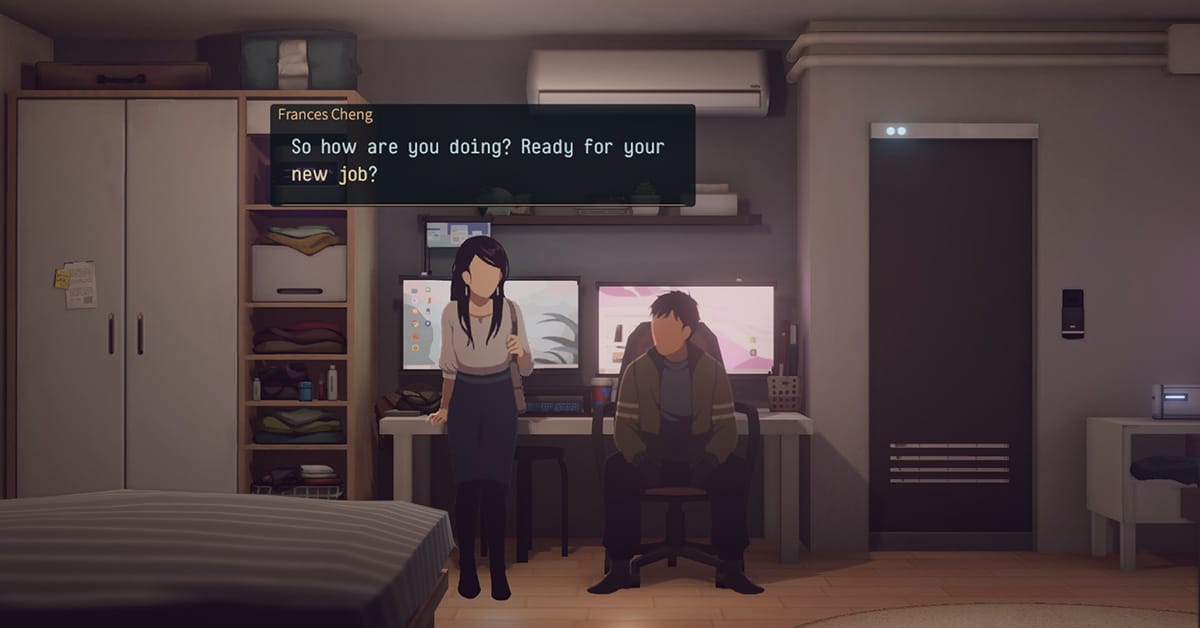
Minds Beneath Us may not be the biggest name on this list, but it is certainly not lacking in quality. Released in 2024, this indie title not only shares decision-based gameplay with Detroit: Become Human but also its science fiction setting.
Developer BearBoneStudio delivers a gripping story with a stunning art style that kept me on the edge of my seat. You play as Jason Dai in a society that is heavily automated, where all infrastructure is managed by AI. The disturbing part is that this AI runs on living human brains.
Jason works for a company that exploits people, often those in desperate financial situations, for their “brainpower.” This creates a host of moral dilemmas that shape both your character and your relationships with others. It is one of the few games where I found myself thinking long and hard about my answers. The choices are rarely black or white, and those are always the best kind.
If you want to know more about this game, you can read my full review here.
Until Dawn
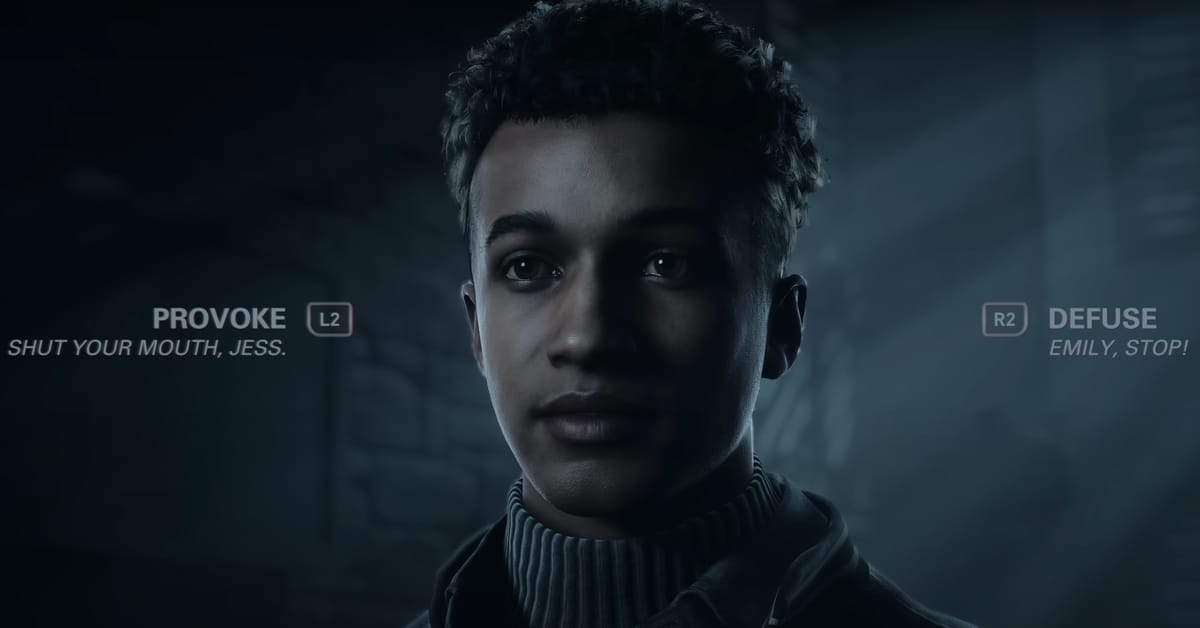
If you have ever wished for a horror version of Quantic Dream, I have good news: it already exists. Supermassive Games uses a very similar approach to gameplay. Their titles weave together a web of branching possibilities based on your choices and the clues you uncover in the environment.
I enjoy all of their games, but in my view Until Dawn is still their finest work. Released in 2015, it follows a group of teenage friends who travel to an isolated mountain lodge one year after two of their friends mysteriously disappeared there.
A cheerful reunion is not what awaits them. Dark forces begin to stir, and it is up to your choices (and your skill with quick time events) who will survive until dawn.
House of Ashes

Just as I highlighted three games from Quantic Dream, I am now including three from Supermassive Games. My next favorite after Until Dawn is House of Ashes.
This time you control no fewer than five characters. A group of Marines led by Eric King sets out in Iraq in search of Saddam Hussein’s chemical weapons. An earthquake interrupts their mission and plunges the team into an ancient, mysterious temple. There they encounter a very different kind of enemy, and once again your choices decide who lives and who dies.
Supermassive Games often puts us in charge of a naïve group of teenagers (which fits the classic horror trope perfectly), but House of Ashes features a more mature cast. This is reflected in the themes the story explores, which are not afraid to touch on political issues.
For more on this game, you can read my full review here.
The Quarry

Together with Until Dawn, The Quarry is one of the bigger and longer titles from Supermassive Games. In this 80s-inspired slasher you take control of nine(!) characters. Once again everything revolves around choice and consequence, which will decide who lives and who dies.
A group of teenagers, camp counselors this time, are stranded at Hackett’s Quarry on the final night of summer camp. After a careful build-up, the inevitable unfolds: mysterious and unwelcome surprises begin to surface.
The Quarry feels exactly like watching a classic horror movie, complete with all the familiar tropes. Like the other games on this list, it has enormous replay value thanks to the sheer number of outcomes that depend on your decisions.
As Dusk Falls
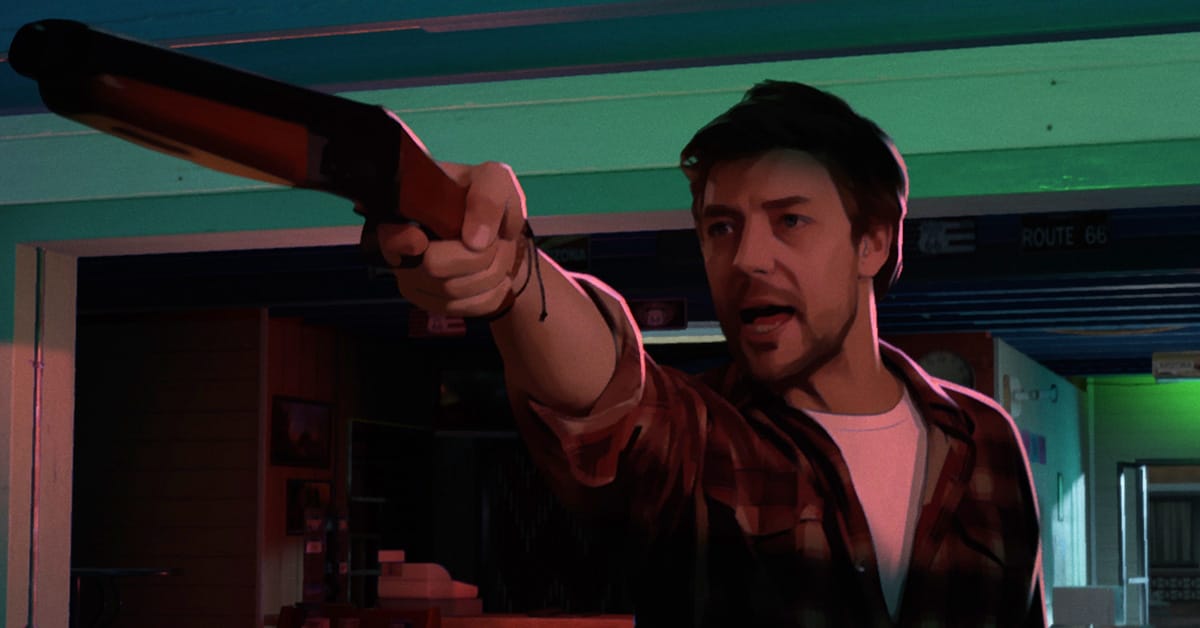
Time to move away from horror. As Dusk Falls, developed by INTERIOR/NIGHT, is another title that feels like an interactive film. Unlike the other games on this list, the story is presented through a slideshow-style art direction. It took me a while to get used to, but in the end I came to appreciate it, and the strength of the story more than makes up for it.
As Dusk Falls is split into two “books,” each with three chapters. It is no coincidence that the game shares a lot of DNA with Detroit: Become Human, since former Quantic Dream lead game designer Caroline Marchal is the founder of INTERIOR/NIGHT.
This crime drama mainly follows two protagonists: Vince Walker and Jay Holt. Vince and his family end up in the wrong place at the wrong time when they get caught in a hostage situation at the Desert Dream Motel, orchestrated by the Holt brothers.
The game moves across different time periods, giving more background to the characters involved. Fans of interactive storytelling will certainly find something to love here. A word of warning though: while there is hope for a third book, the story feels far from finished.
For more on this game, check out my As Dusk Falls review here.
Suzerain
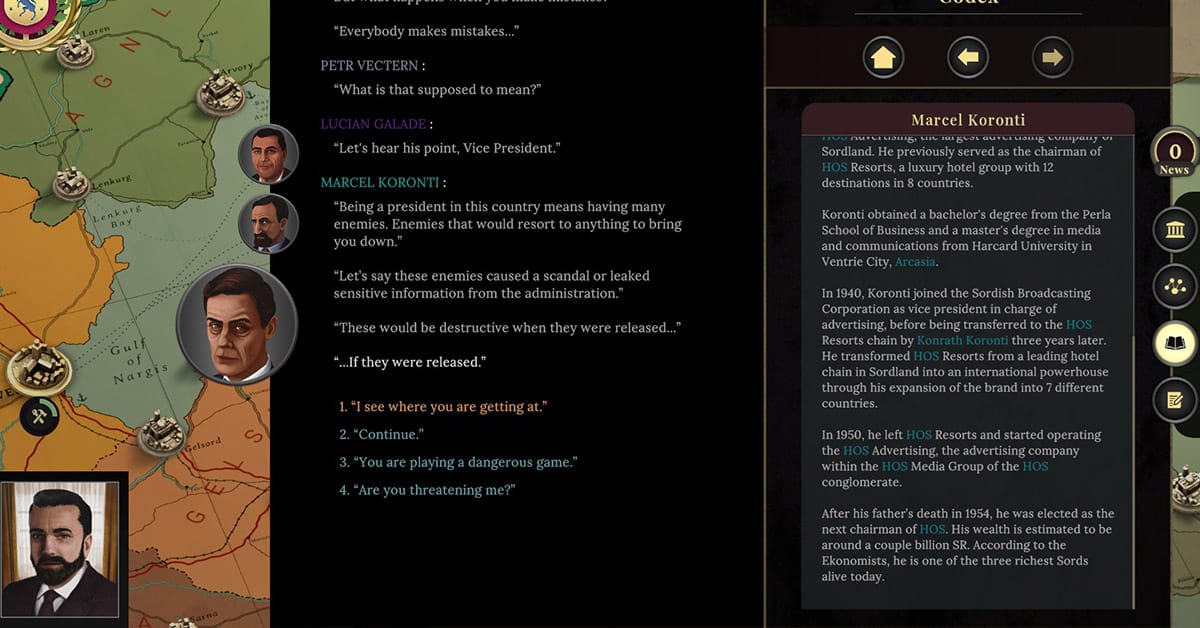
Who makes more choices than a president? Suzerain, a visual novel developed by Torpor Games, puts you in the shoes of President Anton Rayne. Your decisions determine the course of the fictional nation of Sordland.
You come to power in the 1950s, at a time when your country is still recovering from a civil war. You are surrounded by nations and politicians you may or may not be able to trust. This game lingered in my mind for weeks. Even when I was not actively playing, I kept asking myself: where should I spend my limited budget? Who should I trust? Who should I keep close?
The game is entirely text-based, so you have to be comfortable with that. If you are, and you want to see how you would fare as president, Suzerain is well worth your time.
For more on my experience, check out my Suzerain review.
And that completes the list. This should keep you busy for quite a while. In fact, with the way things are looking, you could easily finish all of these games before we finally see the release of a new Quantic Dream title.


